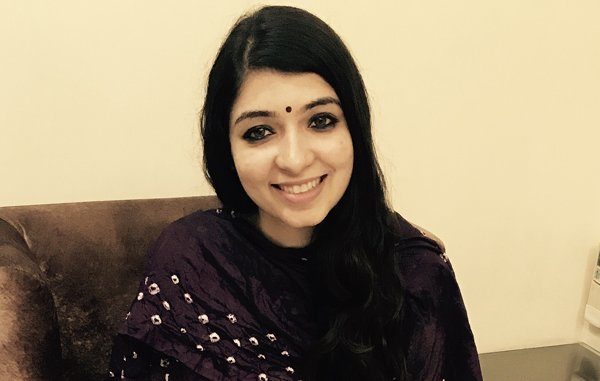Charvi Jain is Founder of Over a cup of Tea — counseling and psychological wellness center in Kolkata. Over a Cup of Tea has a distinct approach towards therapy. It has a team of young individuals. They combine psychological training with their instinct for compassion and empathy in providing personalized care for the clients. They believe in empowering individuals with healthy coping mechanisms, resilience, tools, and techniques instead of having them depend upon pills.
Charvi received her master’s in Counseling Psychology from Tata Institute of Social Science (TISS), Mumbai. Having worked at various settings in the mental health sector, she found consulting for mental issues to be very mechanical. Charvi wanted to provide a more personal and approachable therapy, which encouraged her to kick-start ‘Over a cup of Tea’.
First-name communication is the only way of referring anyone at ‘Over a cup of tea’. She speaks, “I insist my team to address me by my first name. This has helped in making them feel more comfortable and easy to communicate with me.” Charvi divulges that individuals cherish working with us on account of the No Sir No Madam practice. It has helped in imparting a sense of belonging in everyone who works with us and in creating a more easygoing, happy workplace environment.
The desire to be alluded as ‘Sir/Madam’ creates status quo. It makes communicating with someone difficult, especially when you are endeavoring to help them.
In connection to that, she states, “When my clients visit me for the first time, they often address me as ‘Ma’am’. I request them to refer me by first-name so that they do not look at me as an ‘authority’ figure. This technique helps the clients to talk over their problems without any filters or hesitation.”
No Sir No Madam ideology inculcates a comfortable space to communicate and imbibe mutual self-respect. Charvi remembers an instance, where she referred her client to a psychiatrist for second opinion. The client was put-off by the power-dynamic environment that was being practiced in their clinic. The absence of a friendly first-name culture discouraged her to be open about her issues. Furthermore, she mentions that the client felt intimidated and uneasy because of this experience.
Moreover, on talking about public sector, she voices that it is crucial that equal respect was given to everyone. Individuals have been following ‘Sir/Madam’ culture for ages. Although, it is difficult to change their perception overnight, to remove salutation practice is the correct first-step. “Officials are often insecure that, if they did not demand respect, they will not be respected. They, however, should know that if they do their work diligently, they will be respected.”
Charvi speaks of a paradox in Indian culture. Since childhood, Indians are being instructed to respect elders. However, this tradition seems to be conveniently ignored when dealing with blue-collar workers. They are often addressed in a disrespectful manner even when they are much older. Similarly, house-help, maids are expected to address even the kids of their employers with a suffix to show respect.
This has manifested discrimination and inequality over the years. To abolish this hierarchy creating tradition, it needs to be tackled at the grass-roots level. Charvi describes an example of her school, where they were allowed to address teachers by their surname. She confesses that it helped them in approaching their teachers without any hindrance.
Charvi also sites colleges who offer professional courses where the juniors are expected to refer their seniors as ‘Sir/Madam’. She vocalizes that she finds this practice very strange. “I cannot see why respect has to be demanded. Respect for someone comes from within.”
She summarizes,“Removing communication barriers has helped me in creating a wonderful place for my team and clients. It has helped in magically increasing the productivity level, contrary to popular belief.”







Add comment